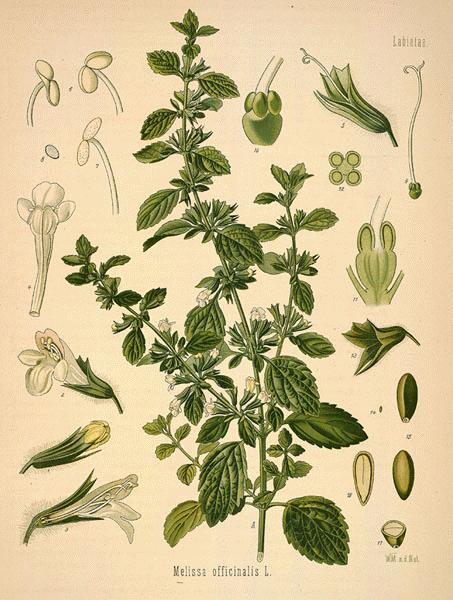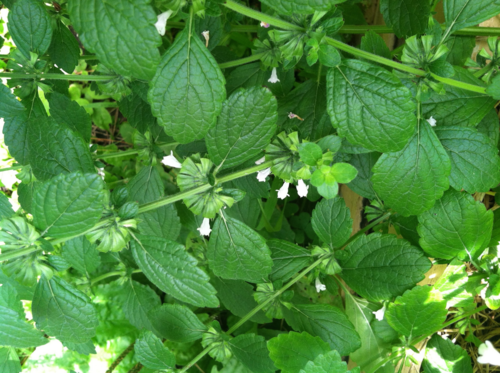|
Lemon Balm is a cheerful little plant. With uplifting, lemon-scented leaves and tiny sweet white flowers, it is a pleasant addition to any garden or kitchen apothecary. I have never found anyone who does not enjoy lemon balm, so I call it a “gateway herb.” Even the most wary newcomers to herbs fall in love with its scent and taste, and then become open to trying many more new and unusual herbs…! Both bees and humans find this plant irresistibly attractive. In fact its Latin name Melissa refers to “bees” — these insects will flock to it whenever it is in bloom. Lemon balm is originally from southern Europe but is now widely cultivated around the world. Like many mint family plants it is a very prolific grower. If you have limited garden space, you may want to place it in a container so that it does not take over the whole garden. (However, I don’t think that that would be such a terrible thing if it did happen...) For centuries this aromatic plant has been used to raise the spirits, comfort the heart, and banish depression and irritability. Its sweet, citrusy leaves yield a delicious tea that is equally good as a cold tea on a hot summer day, or as a warm tea on a cold winter day.
It was once believed that if taken regularly lemon balm would promote longevity — perhaps due in part to its calming effect on the central nervous system. Lemon balm is a wonderfully relaxing, and soothing herb, useful before bedtime to help fall into a peaceful sleep. It is also a fantastically supportive herb during times of stress and anxiety. Personally, I have found lemon balm to be a true “balm” whenever I have felt nervous or stressed about something. I once had a big event that involved public speaking and being filmed, which caused me to feel quite nervous. But, beforehand I took a few sips of my lemon balm cordial (recipe below) and within minutes my nerves quieted down, and the butterflies in my stomach disappeared. I was able to relax and just be myself. What a gift during anxious times! Beyond its wonderful effect on the nerves, lemon balm contains anti-viral properties – this can prove useful for people who suffer from cold sore outbreaks, shingles, colds or flu. It’s definitely one I like to keep handy during the winter months not only for its ability to contain and weaken viruses, but also for its uplifting effect which is beneficial for mild depression and seasonal affective disorder. Lemon balm is a very gentle herb that can be used by nearly anyone — children love it, stressed-out people love it, and anyone in the midst of wintertime loves it! HOW TO USE:
Lemon Balm Cordial
Take this lemon balm cordial by the spoonful as a winter pick-me-up, or sip on it as an after dinner drink. It is divine! Comments are closed.
|
Categories
All
Archives
January 2022
|

